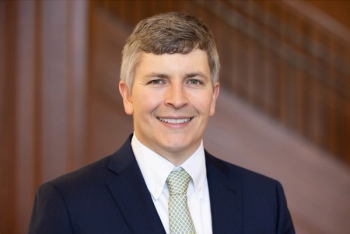
- Pharmaceutical Executive-07-01-2020
- Volume 40
- Issue 7
Virtual Hiring of the C-Suite
How COVID-19 has changed high-level recruitment.
Coronavirus’ impact on work life has been tremendous for everyone. Over the past few months, we’ve gotten used to locating the strongest Wi-Fi in our homes, logging on to
VPNs, and learning how to change backgrounds on Zoom calls. But for some companies, the challenge of quarantine has been even greater, especially those staring at empty C-suite positions.
Indeed, hiring top-level executives has taken on new meaning in this COVID era. While some important elements-such as interacting with candidates in a social setting-are lost, the virtual world does have its advantages when it comes to hiring.
Affimed, a German-based biotech of 100 employees, has learned this well. The company, which has 10% of its workforce in the US, has experience with virtual hiring and a generous work-from-home policy. Within the last few months, however, it was faced with hiring and onboarding three high-level employees online for the first time.
Affimed’s search for a chief medical officer (CMO) began with in-person interviews, but one week in, the company defaulted to a work-from-home environment. Though the CMO was able to onboard in Germany, he was not yet engaged with the US team. “He knew he had to reach out to people,” says Affimed CEO Adi Hoess. “In the first four weeks, he communicated extensively with everybody. When we hired him, I realized that people mattered to him. He said, ‘I need to make sure I have people that I fully understand and can synchronize with.’ His onboarding was easy because he had the right mindset.”
Far more challenging was the onboarding of the chief science officer (CSO), who joined at the end of April. He, likewise, had a few in-person interviews but hadn’t engaged much with the team. “We made sure we had a very intact structure in place,” says Hoess. “We were handing over a CSO department that fully functioned. We showed him how the department is set up, so there was a lot of initial talk about how he could adapt to that.”
The unexpected passing of the company’s chief financial officer (CFO) in the midst of COVID was by far the greatest challenge. The desire to hire a US-based CFO added another layer of difficulty. During the process, Hoess told his team to keep “very open ears and eyes in every interview.” He also involved more people than usual; instead of one or two persons from the board, he asked five or six people to interview. Beyond formal meets, Hoess used his network in a “much more intense way,” reaching out to colleagues who knew the candidates to get their opinions.
“Indeed, the process took a little longer,” says Hoess. “When you usually take your interviews, you talk a lot about content. But, here, almost every discussion, 10 minutes after content, we talked an hour about values. That takes you really forward in your interview process because at the end, you’d rather know the human being you’re hiring-you know they’re all experts.”
Chris Coe, executive vice president of the search firm Talent Mark, agrees that behaviors are just as important as competencies. “That’s a large part of what they [turn to] a headhunter for, trying to find the soft elements,” he says.
According to Hoess, some of the greatest virtual advantages he’s realized are increased efficiency and convenience. “Usually, a person comes for a day into your organization and you have to redesign everybody’s schedule,” he says. “You wait six weeks until everybody has an opening on the same day. [For our recent hires,] everybody found an hour here and there, and we could get the first-pass interviews for five or six candidates done in a matter of two or three weeks.” Hoess also lauded the flexibility of conducting interviews at off-hours from home when searching for candidates abroad.
Though technology isn’t always perfect, video conferencing fortunately has proven to be a satisfactory alternative to in-person meetings. “The [virtual] interaction is pretty good,” says Coe. “You can see quite a lot of body language and pick up on some of those elements.” Even so, Hoess admits that changing mindsets within the company about the possibility of virtual hiring was one of the greatest challenges. “If you think a little bit outside of the box, jump over your own habits, then you can get things done that you otherwise would think are impossible,” he says. “We’re pretty proud that we could manage these hires.”
Coe agrees that flexibility has never been more important. “You cannot be rigid any longer,” he says. “You need to use all resources at hand. You need to be able to navigate new media, new technologies. Sometimes they don’t minimize the risk. That’s why you hire a professional to run and engage with that process. We’ve got all these other elements now, and I think it’s actually good.”
Elaine Quilici is Pharm Exec’s Senior Editor. She can be reached at
Articles in this issue
over 5 years ago
Will COVID-19 Usher in a New Era in Pharma Marketing?over 5 years ago
Is Drug Production Heading Back to Europe From Abroad?over 5 years ago
Central Focus: Targeting Unmet Need in CNSover 5 years ago
Will the Industry Rise to the Occasion?over 5 years ago
How Oncologists are Coping with COVID-19over 5 years ago
Culture and Compliance: Building a Culture of Business Ethicsover 5 years ago
Fauci: Industry Will ‘Walk Away’ From COVID Price Controlsover 5 years ago
A Sustainable Response to COVID-19over 5 years ago
Enterprise Leadership: Is Compliance Ripe for Disruption?over 5 years ago
Pharmaceutical Executive, July 2020 Issue (PDF)Newsletter
Lead with insight with the Pharmaceutical Executive newsletter, featuring strategic analysis, leadership trends, and market intelligence for biopharma decision-makers.




